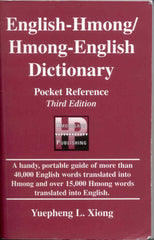The Hmong of China: Context, Agency, and the Imaginary
Paperback, 538 pages, 6x9, English
by Nicholas Tapp
ISBN: 0-391-04187-8
This first ethnography of the Hmong in China is based on Nicholas Tapp's extensive fieldwork in a Hmong village in Sichuan. Basing his analysis on the concepts of context and agency, Tapp discusses the "paradoxical ambivalence at the heart of Hmong culture." A paradox arises in the historical and ethnographic construction of the identity of the Hmong by conscious contrast with, and in opposition to, a majority Han Chinese identity at the same time that large parts of Hmong culture are shared with the Chinese and may be the results of historical processes of adoption, absorption, mimesis, or emulation. Tapp examines the Hmong rituals of shamanism, ancestral respect, and death and provides details on livelihood, kinship, local organization, and intellectual culture. The book is enhanced with thorough accounts of ceremonies, rituals, and folktales, with translations of Hmong songs and stories.
Many of the translations of Hmong songs and stories are exquisitely beautiful, and Tapp's translations are good enough to read as work of art. This book should convince anyone of the value, not just to scholarship but to the human spirit, of publishing texts and contexts. It is strongly recommended to those who have interest in Hmong Chinese studies.







